Cover Letter vs. Resume. What’s the Difference and Why is it so Important to Know it?
- What is a resume?
- What is a cover letter?
- Difference between a cover letter and resume
- Cover Letter vs. Resume
- Resume vs. cover letter: examples of documents
- How to choose a template for your resume
- The best examples of professional resume themes
Cover letter vs resume. If you have tried to find a job at least once, you have most certainly come across the terms "resumé" and "cover letter."
If you also want to focus more recruitment attention to the resume, make a positive impression on the recruiter, and increase your chance of getting a job offer, you need to make a competent resume and a cover letter to go with it. But what's the difference between a cover letter and a resume? And is there even a difference at all?
First answer the question: "Do you send the cover letter and resume separately?" Probably not. The cover letter is a really important part of any resume. So the key issue for you is to know what the difference is between the cover letter and resume. And it is quite significant to know how to make up a resume and cover letter in order to get the perfect job.
What is a resume?
A resume is a form that lists the detailed information about the employment you are seeking. In other words, a modern resume is a special document in which you describe some basic information about your education, work experience, what you can do now, examples of your work, and how to contact you. You may also add your photo, professional characteristics, and a list of hobbies to your resume. It is best to make the resume in the form of key suggestions and lists that will reveal the main information in more detail.
Remember that your resume is your business card, your first introduction to the employer, and your correspondence acquaintance. The standard rule for making a resume is clarity: the resume should not be too long and the information in it should be informative and truthful. The most common format for a resume is to list your contact information, an experience section that includes job titles, job descriptions, job dates, education section, and any other relevant information.
A resume is usually written by a third party and uses as few words as possible to summarize your previous experience. Recruiters note that there are two main criteria against which they evaluate a resume: content and design.
Often, many people refer to CVs by the term resume. And it is a serious mistake to summarize these two concepts. CV (Curriculum Vitae) refers to a more lengthy document than a classic resume. It should list a detailed account of all the specialties you have received, additional courses, jobs, positions you have held, and responsibilities in chronological order. For some professions, such as journalism, CVs should include all their publications, conferences they have attended, internships, etc. In some cases, even the texts of some works may be included in a CV. Thus, a CV can reach up to several tens of pages if your experiences are extensive.
In contrast to a CV, a resume is a more concise document that identifies the key, most important aspects of your professional life. Also, workplaces are listed in reverse chronological order in the resume. The emphasis on experience, skills, and achievements can be individually placed on a specific job. In this way, one candidate's resume may have different content depending on the job for which they are being sent.

What is a cover letter?
All HR specialists know how difficult it is to find the best candidate, especially if there are several dozens or even hundreds of applications for a single job. In this case, recruiters most often pay attention to resumes, which favorably differ from all others, and such a difference can be the cover letter.
Research suggests that HR specialists are much more likely to give responses to those with a cover letter attached to a resume. However, they prefer the emotional texts.
A cover letter is a supplemental letter that is usually attached to various documents, such as when applying for a job, and university or business correspondence. Nowadays, a cover letter is a chance for a candidate to draw the attention of the employer to his or her resume. The cover letter can explain what is not traditionally specified in the resume, or is not sufficiently detailed:
- Information about achievements
- a list of personal qualities
- portfolio of works
- the motivation and interest of the applicant for this particular position
The presence of a cover letter is considered by HR specialists as an additional advantage, and also confirms the serious intentions and professionalism of the candidate. The main purpose of the cover letter is to explain specifically why your candidacy matches the position to which you are sending your resume.
The cover letter demonstrates to the employer that the applicant is interested in his company and not just sending out a resume to everyone. This is not the kind of candidate that anyone likes.
For newcomers who can't yet demonstrate a lot of impressive items on their resume, a cover letter can be a real salvation. If it is sincere and interesting to describe why you dream to work in this particular company and why you can be useful to it, the employer will be touched and may invite you to an interview. Quite often it happens that beginners get a job due to their cover letter.
The main purpose of the resume and cover letter is to describe the direction of your career aspirations and at the same time to encourage a potential employer to pay attention to you.
The next logical question is: "How is a cover letter different from a resume?''
Difference between a cover letter and resume: cover letter vs resume
The preparation of interview documents is probably not the busiest part of job hunting, but it still takes a lot of time and effort, especially if you want it to be as professional as possible. An e-mail and any attached documents are often your first contact with a potential employer, based on which they will create an impression of you.
The resume and cover letter are two very important documents which present the job seeker to the employer.
At the same time, each of these two elements of professional self-representation complements the other, solves its own tasks, and has its own purpose and specificity. So, is a cover letter the same as a resume?
Cover Letter vs. Resume Table
| Cover letter vs resume | Resume | Cover Letter |
| What is the meaning? | A document that contains a lot of detail about the candidate. It includes contact details, professional skills, work experience, recommendations, and education. | A document where you may freely describe your professional experience, as well as why you have chosen this company and what you can offer them. |
| What should the document look like? | It looks like a document with sections and paragraphs that describe the basic information. | A document in the form of a letter. |
| How big should the document be? | A resume should not be longer than one, or a maximum of two A4 pages, and it is desirable to have key information on the first page. | A cover letter should be short, but at the same time concise. It should not be more than half a page long. |
| What should be the style of writing? | Official business style. | A cover letter is written in simple language. That is, in the free-style, following the rules of business correspondence in this case. |
| The presence of photo. | Not necessarily if there is no such requirement in the job description. If the vacancy involves working directly with people, it is advisable to attach a photo. | No. |
| For whom is it intended? | You do not write to a specific person, but simply describe information about your own professional experience. | Refer to your future employer or recruiter by name if possible. |
| What is the main purpose? | A resume gives an overview of your experience, basic skills, and education to the future employer. | You write about your relevant experience, education and skills; explaining why you want to work for the company, what it has attracted you to and your benefits. |
| Is it a separate document? | A resume is a completely separate document. | A cover letter is a quite important part of the hiring process. It is not always the case that candidates send in a resume with a cover letter. Probably just because of laziness, lack of ability to properly compose cover letters, or lack of understanding of their critical importance. |
| Is the document universal? | A resume is a more flexible document. Although, it is recommended to adapt it to each specific job and even to the employer, but this is often not critical. | A cover letter should to a much greater extent be written for a particular position, company, recruitment agency, etc. Therefore, it is not proper to send the same letter to all employers. |
| What are the peculiarities of the presented information in the document? | A resume includes more of the so-called "dry" information. | A cover letter does not copy the resume, but provides an opportunity to supplement it. In the cover letter you have the chance to demonstrate your interest in the vacancy, show enthusiasm, and convince the employer that you have a great motivation to work for the result. This is especially useful if you do not have enough experience for a job; for example, immediately after graduation or when you change careers. |
Cover letter vs resume: examples of documents
Here are some examples of professional resumes and cover letters. You can be inspired by them and write the perfect resume!
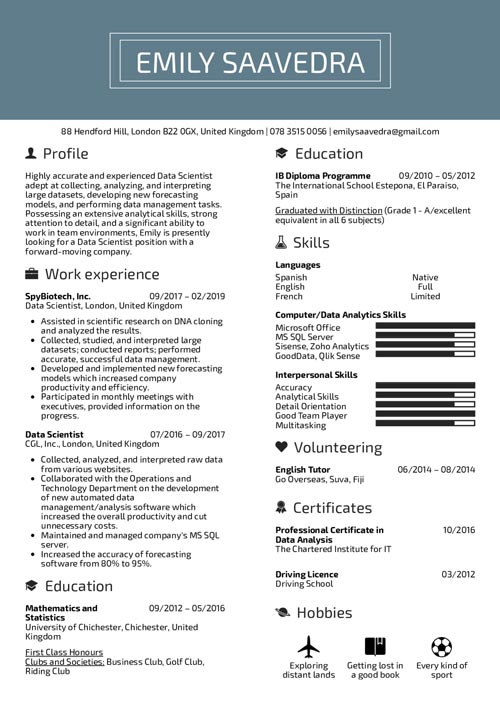
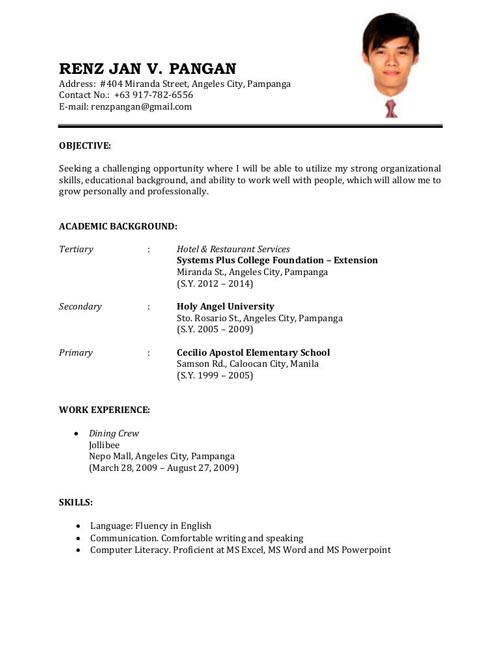
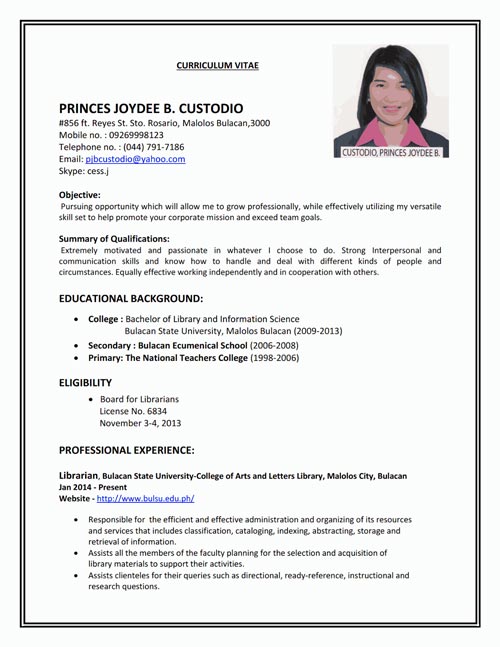
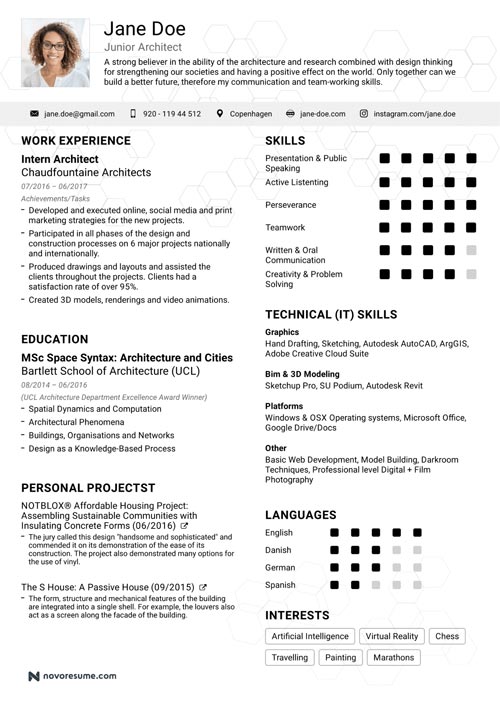
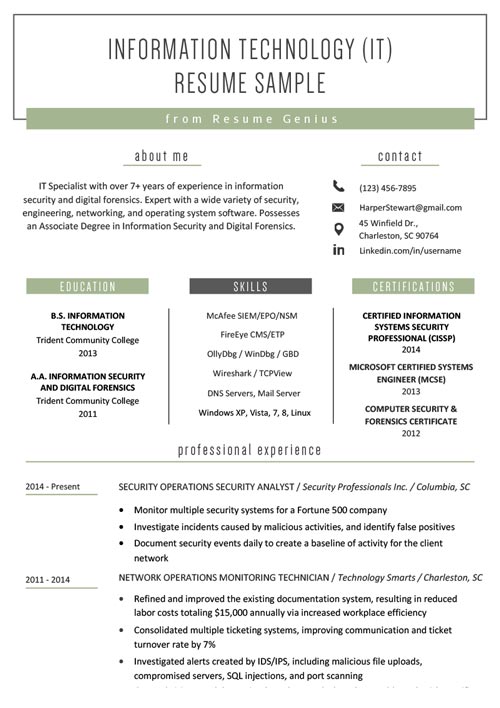
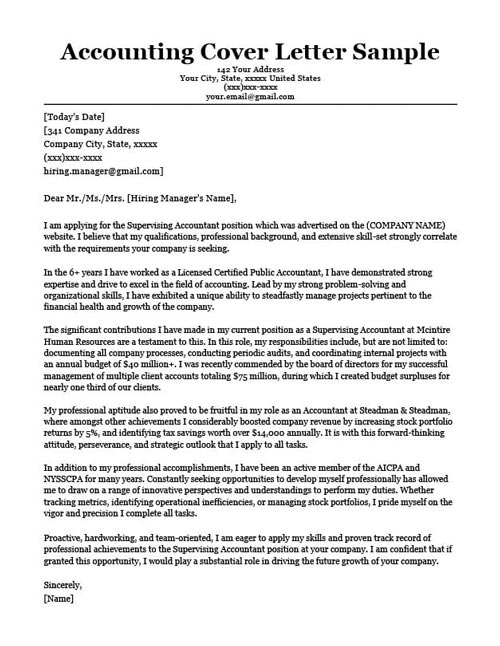
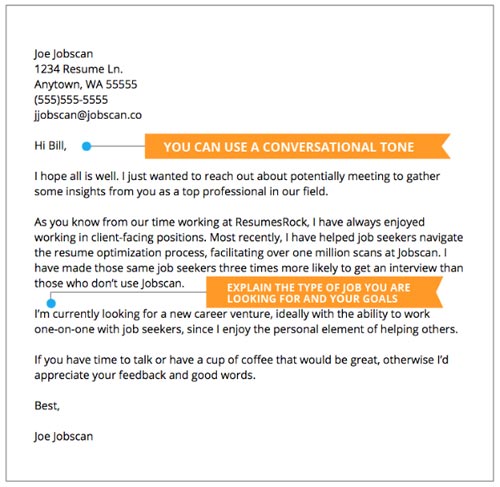
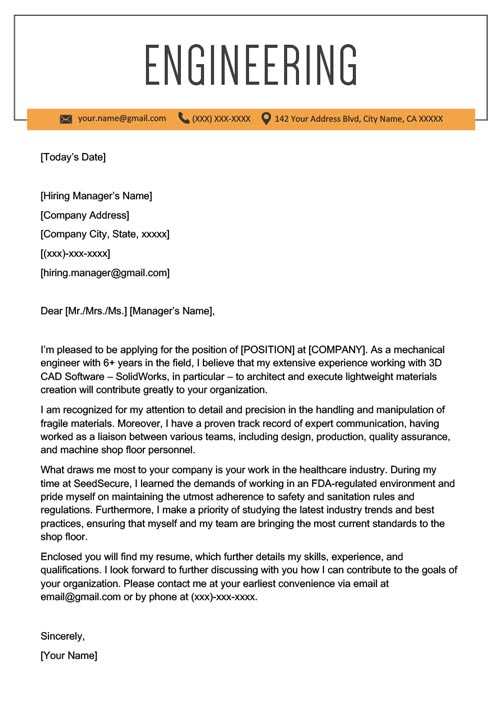
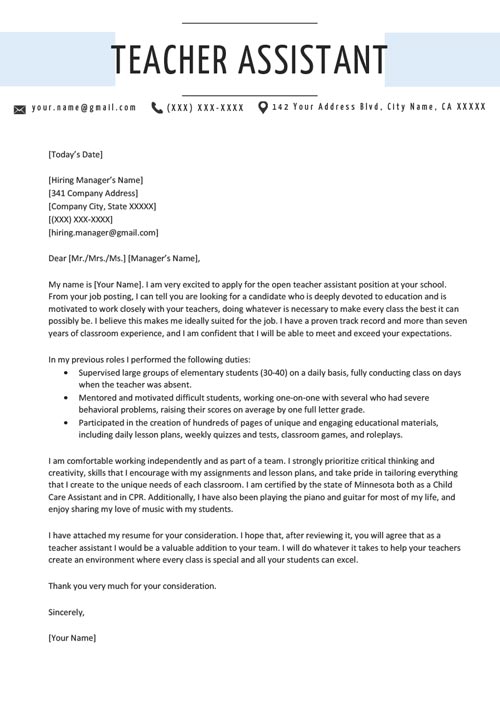
How to choose a template for your resume?
One of the best ways to write a resume quickly and successfully is, of course, to use ready-made templates. There are many options for such solutions on the internet. In addition, there are many builders that help you make a resume. But, is it not better to use a template and create your own unique resume? Especially, if you consider that all elements of templates can be modified and adjusted to suit you. Moreover, in use of builders there are some disadvantages. For example, the free builders contain standard and similar templates that are not very unique.
So, when choosing a resume template, it is extremely important to keep in mind the job for which you are applying. Make sure that the option you choose is suitable for both your job area and the company you are applying for. For more traditional companies and sectors, use simple and professional style templates. And for more innovative and modern ones, choose eye-catching and impressive templates that are definitely good for you. Employers spend little time looking at every resume they receive, so it is extremely important that your resume should be both attractive and easy to read. A good resume template clearly shows the right information to the employer, while showing the best qualities of the candidate. With TemplateMonster templates, you can be sure that your resume will be stylish, clear, and reader-friendly.
The best examples of professional resume themes
Nowadays, every applied resume faces great competition. A professional and catchy resume template is the best way to attract the attention of an employer who is viewing a huge number of similar resumes. Even if the content of your resume is just perfect, a modern and clear resume template can be a dream ticket to the perfect job.
Let's take our resume themes as examples; however, each template from TemplateMonster is unique and special in its own way.
Professional CV Resume Template
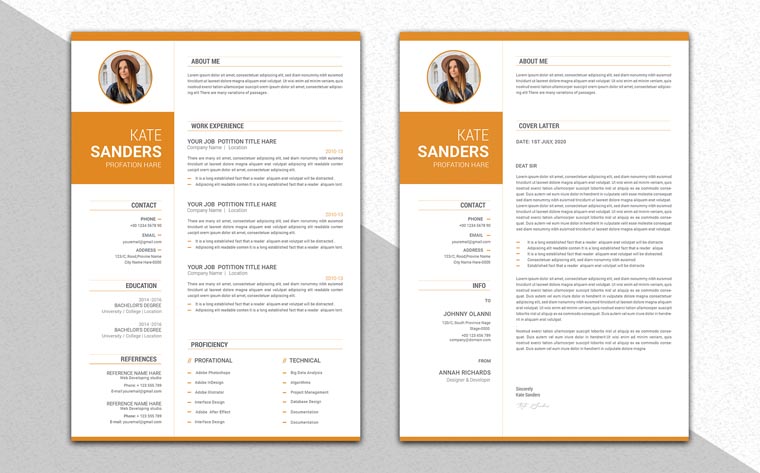
Simple but elegant template has a traditional design but the colors used in the template give it a modern look, which is guaranteed to make a good impression on the employer.
Ericko Lim Resume Template
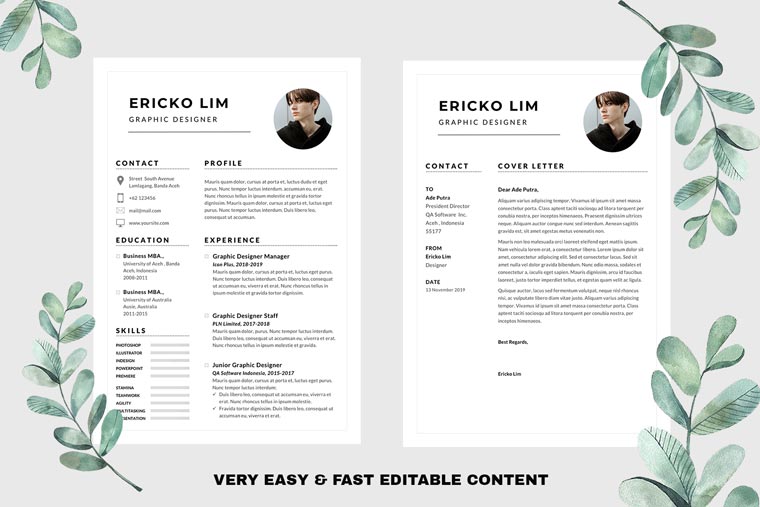
A minimalist, stylish and fresh template can be the ideal solution for you. Elegant design and clear presentation of information in this template provides excellent readability.
Margot Resume Template
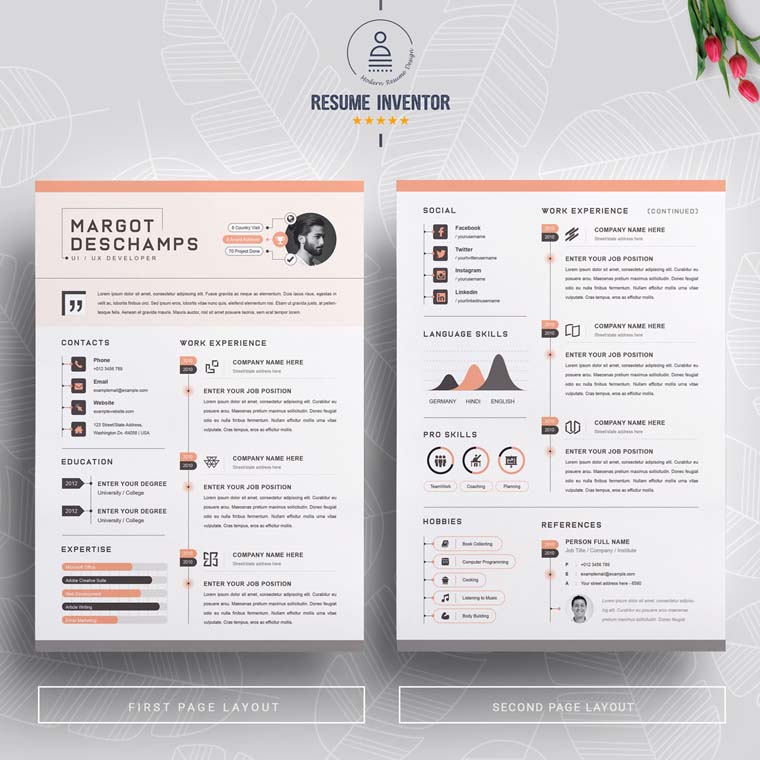
Template Margot is a modern, professional template with fully customizable elements. It is an excellent format for beginners and experienced job seekers who want to make their resume more vivid and unusual.
Elliot Resume Template
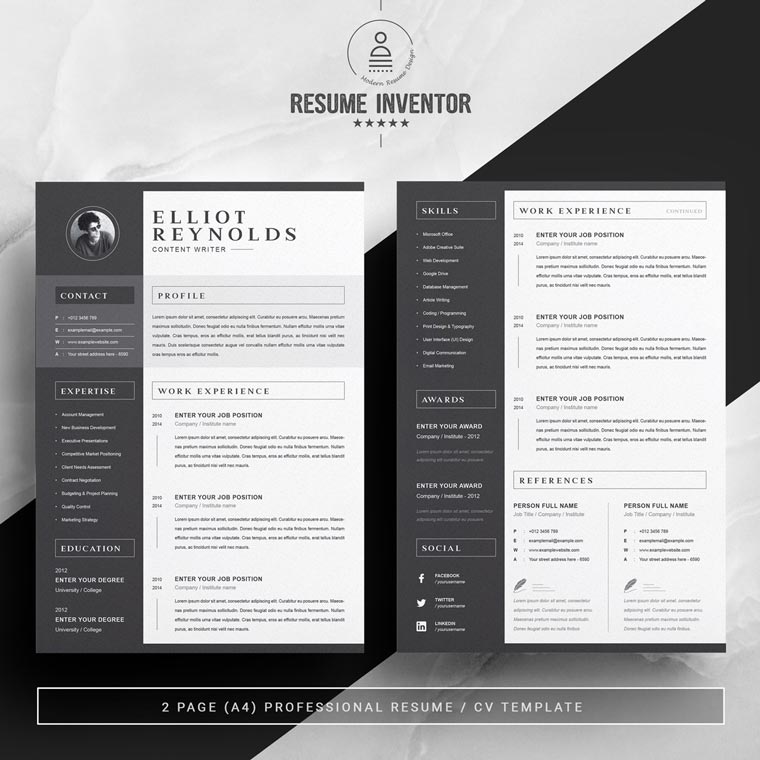
Template Elliot has quite a classic resume format. It is simple enough for traditional purposes, but will still stand out from ordinary resumes.
Kelly Miller - Software Engineer Resume Template
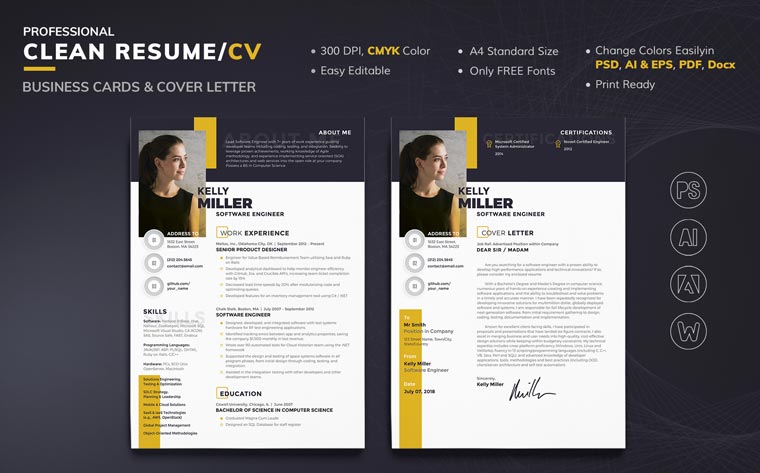
This is an excellent resume for the modern job seeker. It shows skills and experience in a simple and professional style, and the colors used give it a fresh look.
Andy - Clean & Colorful Word Resume Template
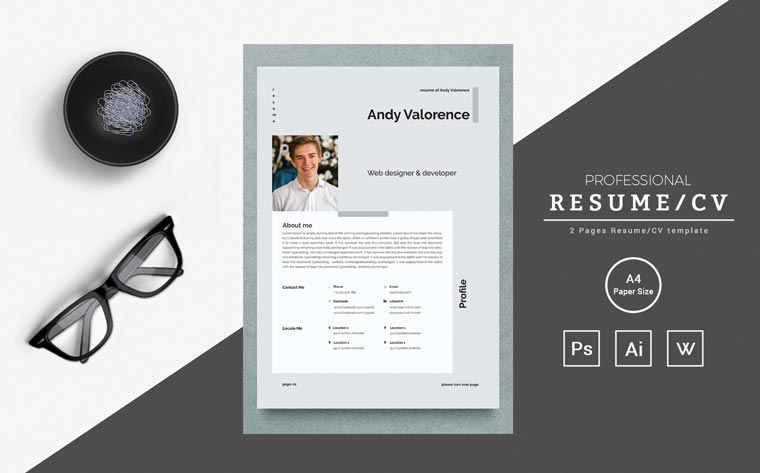
This template is very accurate. It has a discreet color scheme, which makes it ideal for all categories of job seekers.
All these templates are very minimalist. They include all the basic fields that are necessary for a resume: about, contact information, work experience, education, hobbies, and even a photo field.
FAQ: cover letter vs resume
Here is the same principle as a resume vs. cover letter. The CV is a resume, only in a more detailed form. Use the table in the post to see what the differences are!
No, because the CV is a detailed description of your work history. It is a descriptive document. It includes all the information about your career, including all the places you work. A cover letter is a short text, which the applicant sends along with his resume by email.
The common factor is the main purpose of these two documents: to attract the attention of the hiring manager and to receive an invitation for an interview.
Recruiters often read the cover letter because they do not have a lot of time to read the entire resume. Therefore, it would be better to attach a cover letter to your resume. But there are cases when you must do it, such as when you are just beginning your professional career and you want to work in a particular company and in a particular position.
Read Also
What Your Resume Should Look Like in 2020
Get more to your email
Subscribe to our newsletter and access exclusive content and offers available only to MonsterPost subscribers.


Leave a Reply
You must be logged in to post a comment.